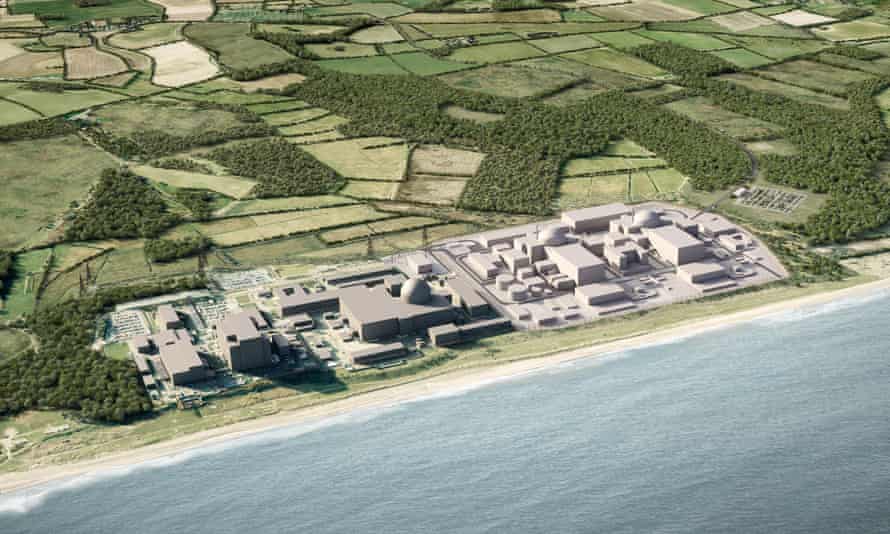China’s nuclear power firm could be blocked from UK projects
Ministers looking at ways to exclude state-owned China General Nuclear from future UK involvement

China’s state-owned nuclear energy company could be blocked from building a nuclear reactor due to rising security concerns over Chinese involvement in critical national infrastructure.
Ministers are reportedly looking for ways to move ahead with plans for EDF Energy to build the GBP20bn Sizewell C nuclear plant on the Suffolk coast without China General Nuclear (CGN), which owns a one-fifth stake in the project.
Whitehall sources have confirmed the report, first published in the Financial Times, which has emerged amid deepening concerns over China’s security risk after the Huawei scandal last year.
CGN holds a minority stake in EDF’s Hinkley Point C nuclear power plant in Somerset, as well as the Sizewell C project, but it hopes to use the pair as a springboard to building a Chinese-designed reactor at Bradwell-on-Sea in Essex.
It has submitted its reactor design for scrutiny by the UK’s nuclear authorities, but industry sources have warned that even if CGN wins approval for its reactor, a Chinese nuclear plant within 30 miles of London would be “politically unpalatable”.
“A minority Chinese interest in a nuclear project could probably be tolerated,” one Whitehall source said. “But the direction of travel towards a Chinese-owned project at Bradwell is no longer tenable.”
EDF Energy and CGN both declined to comment.
The government said late last year it had restarted talks with EDF Energy over how to finance its Sizewell C nuclear project, including ways to include institutional investors or even for the UK government to take a direct stake in the project. These options could help the French company proceed with Sizewell without CGN’s financial support, according to one source.
“There are ways for EDF to attract other investors onboard,” said a source. “By wiping their hands of the Chinese they could open up the opportunity for investment from the US, for example. There are many ways to cook this pie.”
The government reopened talks with EDF months after plans to build a GBP20bn reactor at Wylfa in Wales fell apart after Japanese conglomerate Hitachi rejected the government’s financing deal, in a blow to the government’s new nuclear ambitions.
The UK had hoped to build at least six new nuclear power plants across the country but three have been cancelled, leaving only the projects with Chinese involvement: Hinkley Point, Sizewell and Bradwell.
A spokesperson for the Nuclear Industry Association warned that by 2030 all but one of the UK’s existing nuclear power stations will have been retired, “so it is vital that the UK invests in new reactors – both large and small modular designs – to help meet our climate targets and create good jobs across the country”.
“Achieving net zero by 2050 will require four times as much zero carbon power as we have today – that means more nuclear, more wind and more solar,” the spokesperson said.
The fresh fears over Chinese involvement in the UK’s nuclear future have emerged amid deepening tensions between China and western governments, and weeks before a ban on all Huawei equipment in the UK’s 5G networks takes effect from September.
Zhao Lijian, a spokesperson for China’s foreign ministry, told the Reuters news agency that the UK government should “earnestly provide an open, fair and non discriminatory business environment for Chinese companies”.
“It is in the interests of both sides to conduct practical cooperation in the spirit of mutual benefit and a win-win result,” he said.
A spokesperson for the UK government did not comment directly on the claims that ministers would seek to forge a nuclear programme without CGN, saying “all nuclear projects” must comply with “robust and independent regulation” in order to meet the UK’s “rigorous legal, regulatory and national security requirements, ensuring our interests are protected”.